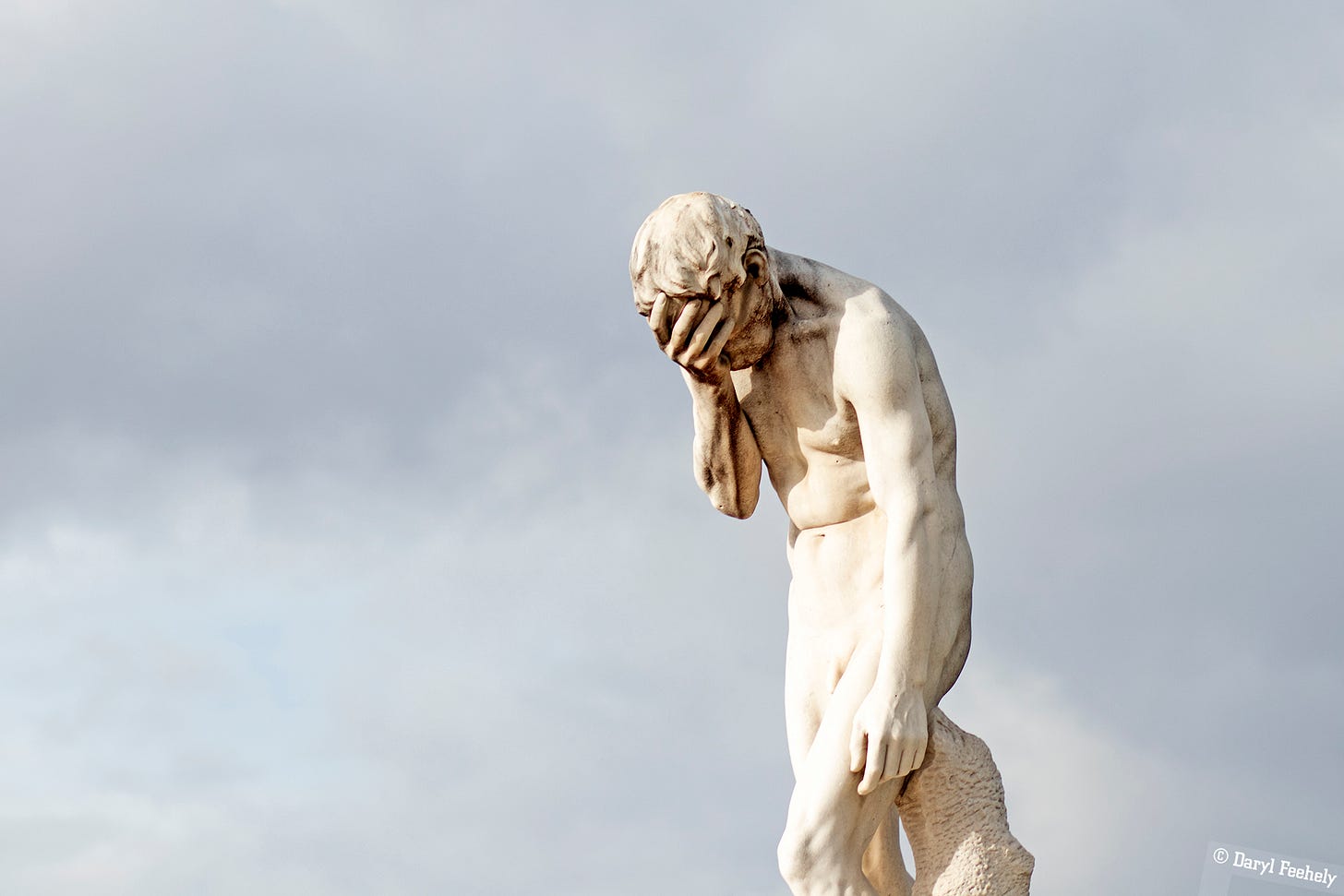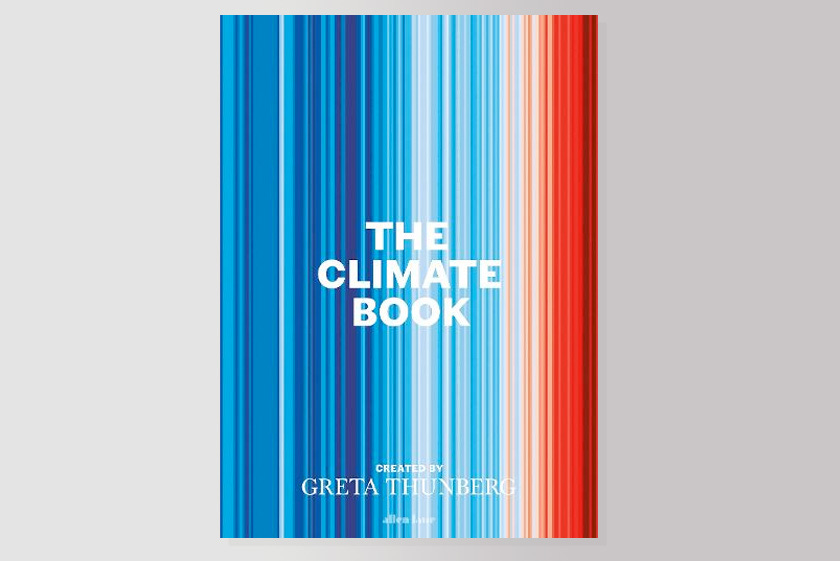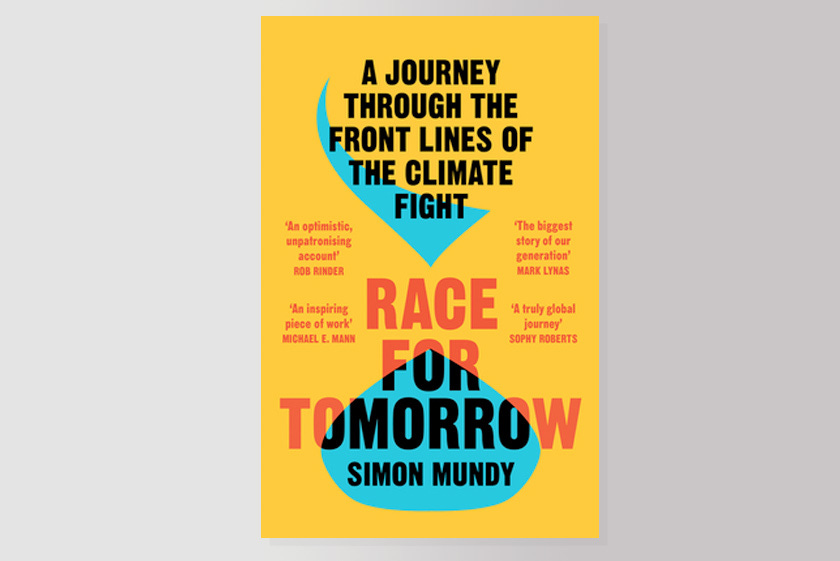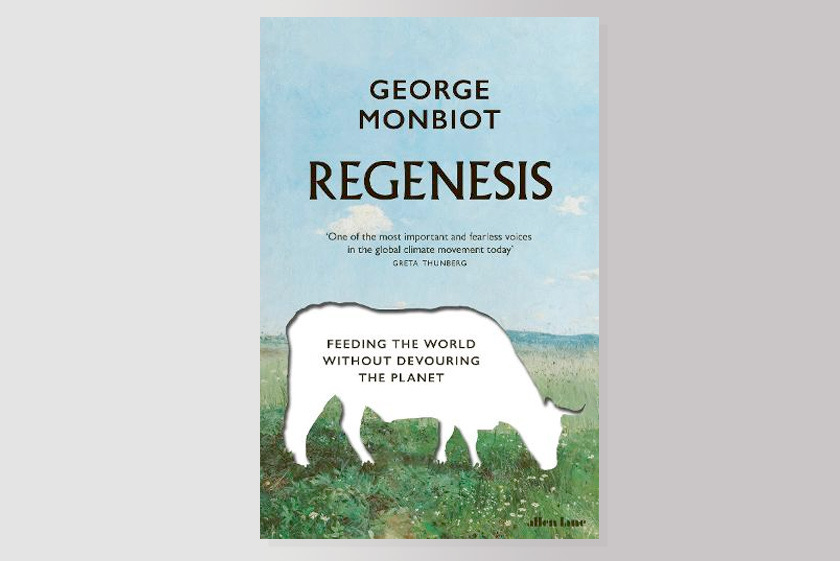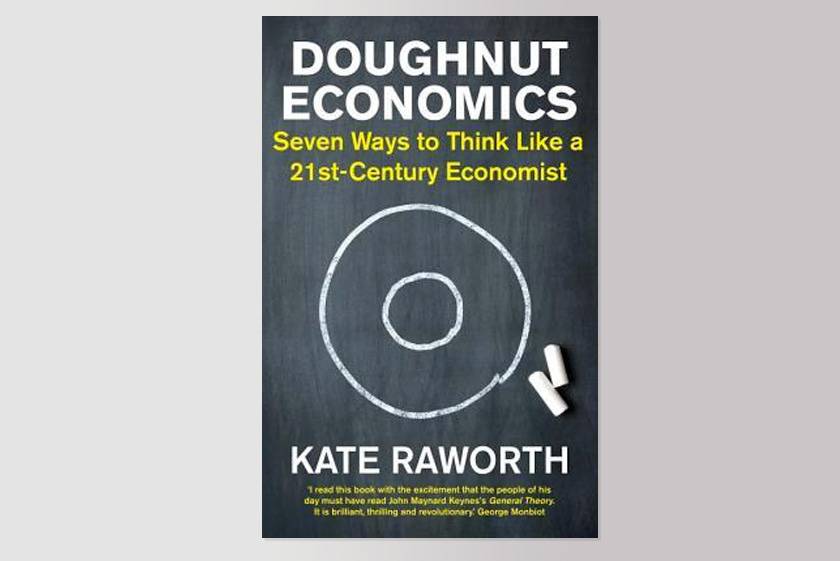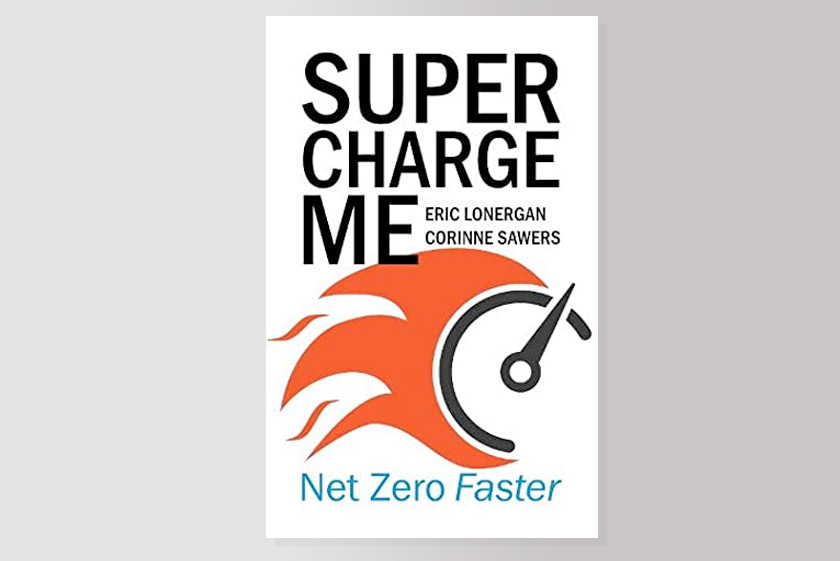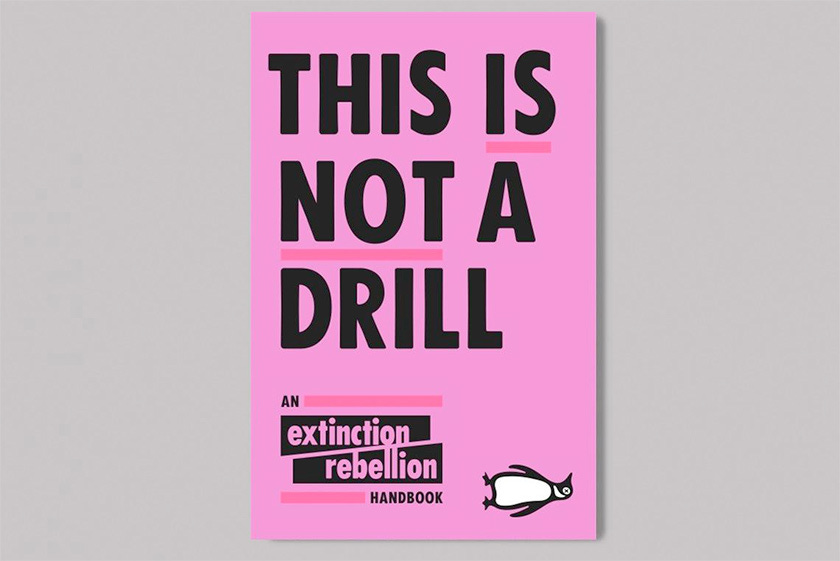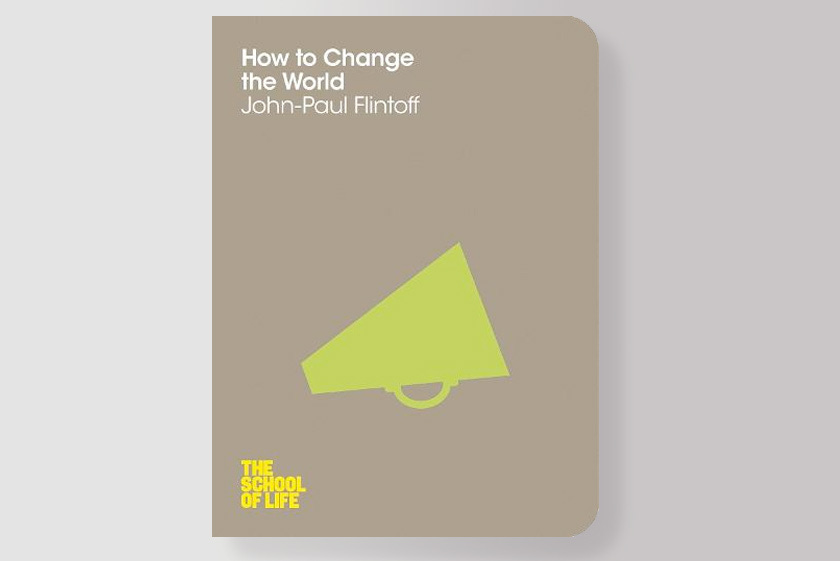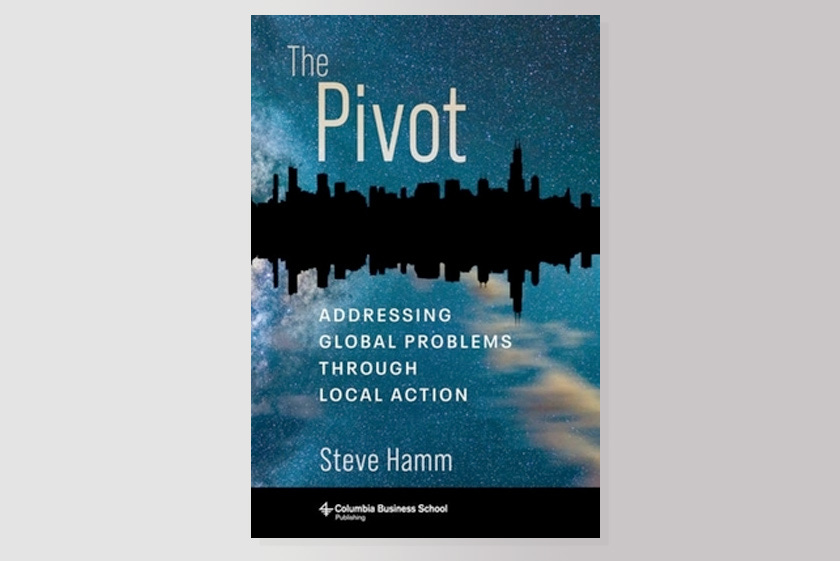Time is up. We have to drastically reduce emissions within the decade. You may know this already, but have you accepted that you can do something about it?
Everyone in business can act on the Climate Emergency in some way, but managers and business owners have unique leverage. We set policies, we make project planning and budget decisions, we promote the purpose and vision of our organisations, we build culture, we take action.
Up to now, all that work has been primarily in service to the bottom line, understandably. However, many of us work for or with organisations that are stable enough to be able to focus on higher level priorities without worrying that the business will close its doors in the morning. It is here that priorities need to shift. It is time to put sustainability as the number one priority, above efficiency, convenience, and even profitability. I’m not saying we all turn to communism, but I am saying that we need to take the Climate Emergency seriously, because if we don’t prioritise it, then we are not taking it seriously.
For the next decade, sustainability is more important that all but the profit needed to keep the doors open.
If that sounds ridiculous or overly dramatic to you, then respectfully, you don’t understand the scale of the emergency. The time for sugar-coating this message has long passed, but the time for compassion and empathy between everyone has never been more important. We all need to help each other come to the gut-wrenching realisation that we are heading towards societal collapse within a generation or two.
We are on track for 2.8°C to 3.4°C of warming by 2100 if we do not act, which means extreme weather events, leading to unstable crop yields, leading to the collapse of industrial food production, leading to mass migration to the tune of millions. Add to that sea level rise, unbreathable wildfire air, temperature bombs, and climate tipping points being crossed, all of which are starting to happen now, before we even reach 1.5°C of warming. I don’t see how our current society can survive in that context, and I think succession beyond our grandchildren at this point is uncertain.
It is natural to want to ignore this, or deny it, or delay addressing it.
It is too late for all of those.
All that is left now is hope and action. In his book How To Change The World, John-Paul Flintoff describes hope as “an axe you break down doors with. Hope calls for action”. As managers and business owners, we now have an opportunity to use hope to drive climate action within and outwith our organisations. It is time to pick up the axe in your business.
To start with, inform yourself on the basics of the problem.
Here’s a simple guide from the BBC: What is Climate Change.
There are lots of great books about climate out there, these are my five Climate Emergency book recommendations. (I would also recommend This Is Not A Drill, which is the book that opened my eyes to the reality of the Climate Emergency).
Listen to John Gibbons on the Tortoise Shack podcast and on Eamon Dunphy’s podcast, listen to DCU’s Code Red Podcast series and RTÉ’s Hot Mess podcast, and tune into The Last Word’s environment slot on Today FM every Thursday.
Read the Summary for Policy Makers IPCC 6th Synthesis Report, paying particular attention to the graphic on page 7.
Then read the Ireland’s Greenhouse Gas Emissions Projects 2022-2040 report from the EPA, starting with the Key Findings table on page 2.
You now have the basic facts. The science is abundantly clear, and the current path is disastrous, but the hope is to be found in the action. The IPCC report shows that the changes being made now in reducing emissions are positively reducing the warming of the planet. Climate Action is working! We just aren’t doing anywhere near enough.
We know Climate Action works, now let’s do it everywhere.
If your industry has sustainability regulations and standards, start there. Meet them and then excel at them. Set the bar in your industry for sustainability and use it as a differentiator from your competitors.
Use the UN Environment Programme’s Book of Green Nudges to encourage Climate Action among your co-workers.
Reduce, ration, or eliminate air travel, and give employees extra travel time for their holidays if they agree to go by ferry and/or land instead of flying. Listen to Philip Boucher-Hayes here to find out why this needs to be done.
Move to cloud hosting providers with the lowest equivalent CO2 per KWh emissions. Read about the impact of data centres here to find out why this needs to be done.
Set the default browser homepage and search engine on all your computers to Ecosia, who plants trees for every search.
Use all the green grants available to your business.
Use your voice. Share this post, or write your own. Have the conversations everywhere. Accept that it is a hard topic and be kind to others that haven’t had the realisation yet, and be kind to yourself when you find yourself slipping back into wanting convenience over sustainability.
From here on out, every election is a Climate election. Let politicians, government representatives, and your industry bodies and organisations know that your business is focussed on Climate Action, and you will not be represented by or support those that are not. Our political leaders have shown that they will choose money & power over the planet. Vote them out. If you believe that politics has no place in business or work life, then wake up. To quote Skin from Skunk Anansie, everything’s political.
These are just a few Climate Action examples, there are legions more. Find them, track them, graph them, make them KPIs. Chase them down like your life depends on it, because the future of a stable society does.
As professionals, we each have a moral and ethical responsibility to put sustainability first, given the stakes. In his book The Pivot, Steve Hamm documents projects that attempt to address global problems through local action, and describes the Points of Light engagement model as when thousands of local communities deliver incremental projects that address a global problem, each project becomes a shining light. When all the lights are turned on, it lights up the sky and you have fundamentally changed the world.
You will meet hesitation, criticism, denial, & delay on your Climate Action journey, but you have to try to make your business and yourself one of those lights in the sky. If your organisation is not willing to step up, despite your best efforts, then leave. Use the 80,000 hours website and their jobs board to move to a career where you can have a positive impact.
Mark Manson describes the four stages of life as mimicry, self-discovery, commitment, and legacy. With the Climate Emergency, we have all been upgraded to the legacy stage. Climate Action is the most important action you will take to ensure there is a legacy for those that come after us.
We have a small window, we must drastically reduce emissions within the decade.
Do you want to go to your grave knowing you could have been a good ancestor, that you could have acted, but didn’t?
“It has to be us, it has to be now.”
- Greta Thunberg
Cain by Vidal, Jardin des Tuileries, Paris - March 2020
Mentioned Books
Details of the books mentioned above can be found below.
All links are affiliate links which earn commission that support the running of smartthinkingbooks.com. All prices correct at time of writing.
The Climate Book
Greta Thunberg
We still have time to change the world. From Greta Thunberg, the world's leading climate activist, comes the essential handbook for making it happen.
You might think it's an impossible task: secure a safe future for life on Earth, at a scale and speed never seen, against all the odds. There is hope - but only if we listen to the science before it's too late.
In The Climate Book, Greta Thunberg has gathered the wisdom of over one hundred experts - geophysicists, oceanographers and meteorologists; engineers, economists and mathematicians; historians, philosophers and indigenous leaders - to equip us all with the knowledge we need to combat climate disaster. Alongside them, she shares her own stories of demonstrating and uncovering greenwashing around the world, revealing how much we have been kept in the dark. This is one of our biggest challenges, she shows, but also our greatest source of hope. Once we are given the full picture, how can we not act? And if a schoolchild's strike could ignite a global protest, what could we do collectively if we tried?
We are alive at the most decisive time in the history of humanity. Together, we can do the seemingly impossible. But it has to be us, and it has to be now.
Buy On:
Easons €35.00
Waterstones £25.00
Race for Tomorrow: Survival, Innovation and Profit on the Front Lines of the Climate Crisis
Simon Mundy
In this extraordinary journey through 26 countries, Simon Mundy meets the people on the front lines of the climate crisis, showing how the struggle to respond is already reshaping the modern world - shattering communities, shaking up global business, and propelling a groundbreaking wave of cutting-edge innovation.
HOW is China's green energy push driving a hazardous mining rush in Congo?
WHY is a maverick scientist building a home for engineered mammoths in northeast Siberia?
CAN an Israeli fake meat startup make a fortune while helping to save the Amazon?
WILL Greenland's melting sea ice put its people at the centre of a global power struggle?
WHO are the entrepreneurs chasing breakthroughs in fusion power, electric cars, and technology to suck carbon from the atmosphere?
As the impacts of climate change cascade across the planet and the global economy, who is battling to survive the worst impacts - and who is chasing the most lucrative rewards?
Telling unforgettable human stories from six continents, this is an account of disaster, of promise, of frantic adaptation and relentless innovation, of hope, of survival, and of the forces that will define our future.
Buy On:
Easons €13.99
Waterstones £9.99
Regenesis: Feeding the World Without Devouring the Planet
George Monbiot
From the bestselling author of Feral, a breathtaking first glimpse of a new future for food and for humanity
Farming is the world's greatest cause of environmental destruction - and the one we are least prepared to talk about. We criticise urban sprawl, but farming sprawls across thirty times as much land. We have ploughed, fenced and grazed great tracts of the planet, felling forests, killing wildlife, and poisoning rivers and oceans to feed ourselves. Yet millions still go hungry.
Now the food system itself is beginning to falter. But, as George Monbiot shows us in this brilliant, bracingly original new book, we can resolve the biggest of our dilemmas and feed the world without devouring the planet.
Regenesis is a breathtaking vision of a new future for food and for humanity. Drawing on astonishing advances in soil ecology, Monbiot reveals how our changing understanding of the world beneath our feet could allow us to grow more food with less farming. He meets the people who are unlocking these methods, from the fruit and vegetable grower revolutionising our understanding of fertility; through breeders of perennial grains, liberating the land from ploughs and poisons; to the scientists pioneering new ways to grow protein and fat. Together, they show how the tiniest life forms could help us make peace with the planet, restore its living systems, and replace the age of extinction with an age of regenesis.
Buy On:
Easons €28.00
Waterstones £20.00
Doughnut Economics: Seven Ways to Think Like a 21st-Century Economist
Kate Raworth
The book that redefines economics for a world in crisis.
Relentless financial crises. Extreme inequalities in wealth. Remorseless pressure on the environment. Anyone can see that our economic system is broken. But can it be fixed?
In Doughnut Economics, Oxford academic Kate Raworth identifies the seven critical ways in which mainstream economics has led us astray - from selling us the myth of 'rational economic man' to obsessing over growth at all costs - and offers instead an alternative roadmap for bringing humanity into a sweet spot that meets the needs of all within the means of the planet. Ambitious, radical and provocative, she offers a new cutting-edge economic model fit for the challenges of the 21st century.
Buy On:
Easons €15.40
Waterstones £10.99
Supercharge Me: Net Zero Faster
Eric Lonergan, Corinne Sawers
Almost everyone agrees on the need to transition the global economy to net zero. But how do we do it? And how do we do it faster? If you feel demoralized, depressed or confused about the climate crisis this book will provide answers - and ones that don't involve punishing lifestyle changes, the end of capitalism, or a much higher tax bill.
Supercharge Me is grounded in relentless realism about how governments, businesses and individuals actually behave. It draws lessons from what has worked so far: extreme positive incentives and smart regulations. Through a series of fast-paced dialogues, the authors introduce practical ideas for change that will embolden activists, reinvigorate the disheartened, and reframe the climate crisis as an opportunity.
Buy On:
Easons €14.55
Waterstones £12.99
This Is Not A Drill
Extinction Rebellion
The most important book you will read. It's a gut punch followed by a loving hug and sense of empowerment.
Buy On:
Waterstones £7.99
Easons €8.96
How to Change the World (The School of Life)
John-Paul Flintoff
An excellent book to use as a refresh button to improve your world view and motivation. The book demonstrates how change starts within each individual and can be nurtured and fruitful when viewed and enacted in the right way. Once that framework is in place internally, it can be extended externally to effect change in the world around you.
I wish I had read this book in my 20s, and I hope to refresh my mental framework with it for years to come. It is an especially useful book in the context of how to come to terms with the climate emergency, and how best to think about working for the climate and to be hopeful, because "hope is an axe you break down doors with. Hope calls for action".
Buy On:
The Pivot: Addressing Global Problems Through Local Action
Steve Hamm
As the world began to get to grips with the COVID-19 pandemic, a group of people began to see a small window of opportunity. This time of disruption, change and re-organisation that every country in the world was going through could provide the launchpad to address and expedite many of the systematic changes needed to tackle the climate crisis. Thus Pivot Projects was born.
Steve Hamm deftly documents this fascinating volunteer project that aimed to bring together diverse groups of experienced people to distil various areas of society into a set of mind maps, which they then feed into an AI model primed with the wealth of freely available scientific knowledge, with the goal of using it to identify systems based solutions to climate problems across sections of society. A mammoth task that they not only brought into being, but in the process demonstrated a framework for collaboration at a local level to produce repeatable local solutions that, when combined, can be as effective as drops of water joining to become an ocean.
The book effortlessly guides us through the ideation and inception stages of the project, onto the pivots undertaken and lessons learned through trial and error, finally revealing how this framework of local action began to emerge, before handing it over to us, the inspired reader, to take what we've learned and contribute to the mission of tackling climate change.




